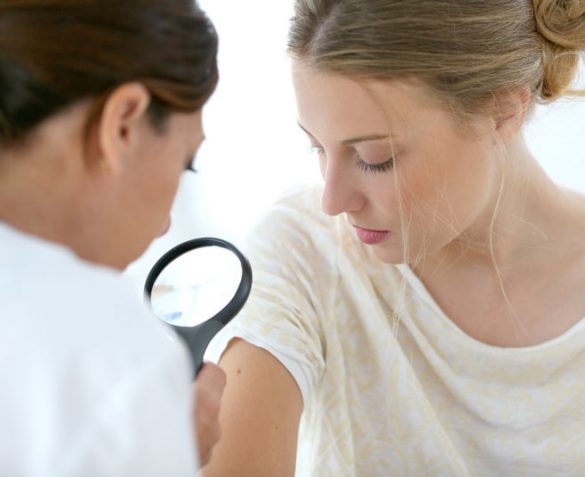 One of the UK’s foremost experts in skin cancer detection, Dr Deepak Rallan from Diamond Skin Care, explains how to maintain your peace of mind as access to healthcare has become more restricted.
One of the UK’s foremost experts in skin cancer detection, Dr Deepak Rallan from Diamond Skin Care, explains how to maintain your peace of mind as access to healthcare has become more restricted.
Since March, lockdowns and government restrictions have dramatically changed our access to healthcare. The focus of resources has been diverted to Covid-19 prevention, leaving patient groups with cancer-related concerns anxious and wondering how to seek help. When it comes to cancer, there is no substitute for early detection, so extended waiting times to see a doctor can cause anxieties to spiral out of control. But help is at hand for those worrying about the most common human cancer: skin cancer. Answer Dr Rallan’s five questions to give you peace of mind about your skin cancer risk.
“There are only five real questions we ask to decide if further investigation is needed for a skin lesion,” explains Dr Rallan. “The good thing about skin is that anyone can identify these five things without needing a scan or a complicated procedure.”
1. Ask yourself: Am I at risk?
Dr Rallan advises that the major risk factors are a positive family history among parents and siblings and previous multiple episodes of sunburn. Many people worry more about minor risk factors like a lot of moles, too much time spent in the garden or having lived abroad. If there are multiple minor risk factors then they can add up, but if only one or two are applicable then you are not considered high risk. So, if you have never had skin cancer, no one in your family has a history and you haven’t had many sunburns, then your risk is low. The recommended annual full body check is more than enough.
2. Is the lesion new?
A new skin lesion understandably causes concern. However, it is entirely normal to get new moles well into our forties and even early fifties. Beyond this age, it is also normal to develop various new benign pigment changes on the skin. The majority of new lesions are benign, but for all new lesions ask yourself the next question.
3. Is the lesion black?
The majority of normal moles and benign skin changes are various shades of brown. Dr Rallan advises: “I always tell patients that the colour brown is fine in a mole, light brown is fine, dark brown is fine. But if you see black, this can be the first sign of the possibility of a serious skin cancer.” However, a black colour on its own is not always suggestive of something sinister. So, we couple it with the next question.
4. Is it changing?
The longer a lesion is unchanged, the more reassured you can feel. “I often counsel our mole check patients to look out for changes in a four to six month period,” Dr Rallan says. “Lesions established for a year or longer which remain unchanged mean there is very little possibility of anything disturbing.” Some people naturally tend to have darker moles and even black moles. Skin cancer of the melanoma type rarely stays unchanged in size, shape or colour distribution for more than a few months.
5. Does it keep bleeding or crusting?
This question is a bit like a safety net if you answered ‘no’ to the other questions above. The first four questions are designed to catch the more serious form of skin cancer called melanoma. There are two other types which are a lot less concerning than melanoma. Melanomas rarely crust or bleed, so never wait for these symptoms to develop before seeking help. However, any lesion that is new and persistently crusts or bleeds could certainly do with a closer look.
What to do if you suspect you have skin cancer
If you suspect skin cancer you may consult your doctor who will either reassure you or refer you to a hospital specialist. Only the suspect moles will be checked and this process can take up to six weeks if removal is needed.
Diamond Skin Care offers a full body mole check and removals in Norwich and Colchester. The mole check service is effective and painless using an advanced technique called Dermoscopy. This technique can spot cancerous moles much earlier than previously possible, giving you peace of mind about skin cancer.
For more information please call 01603 819125, email [email protected]


